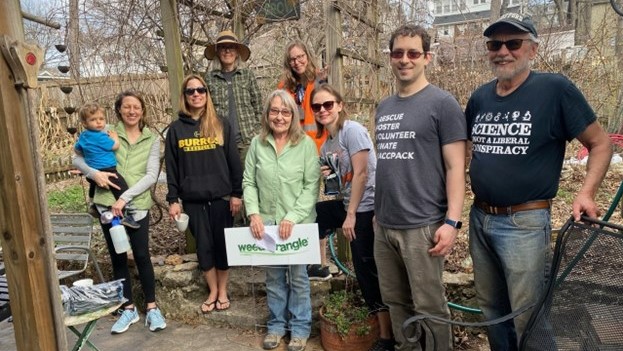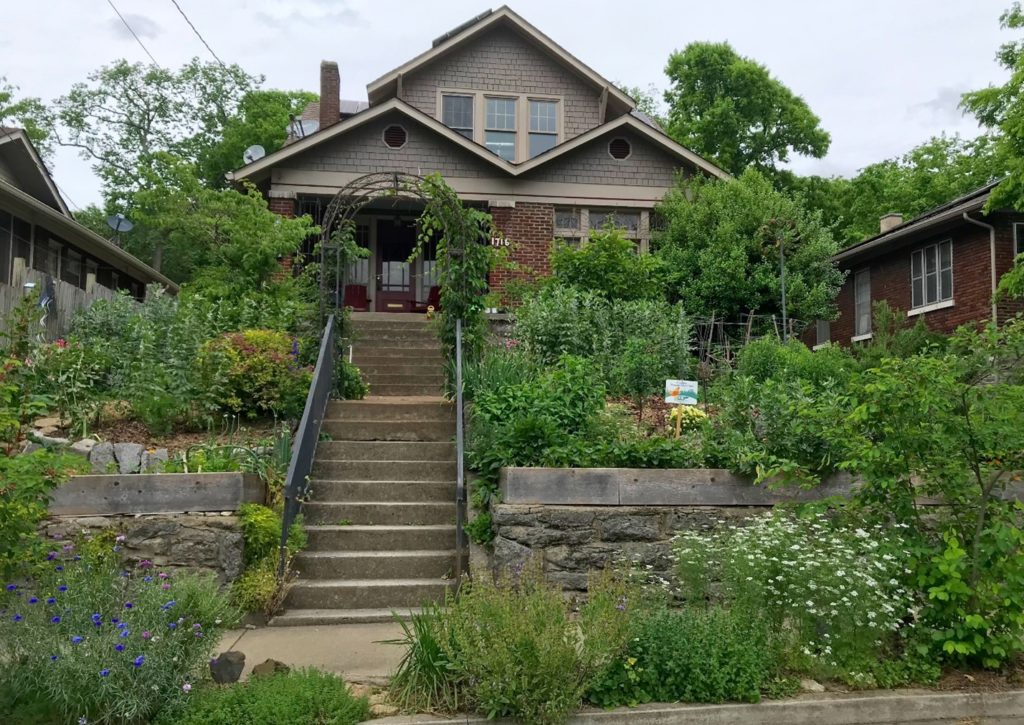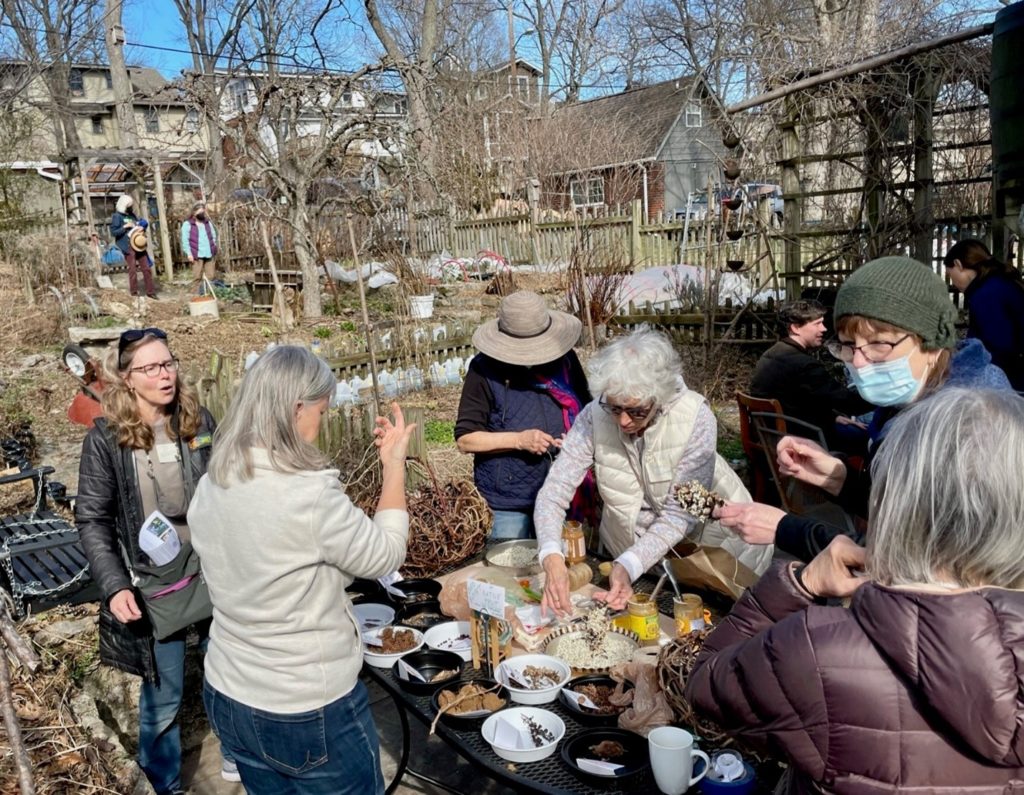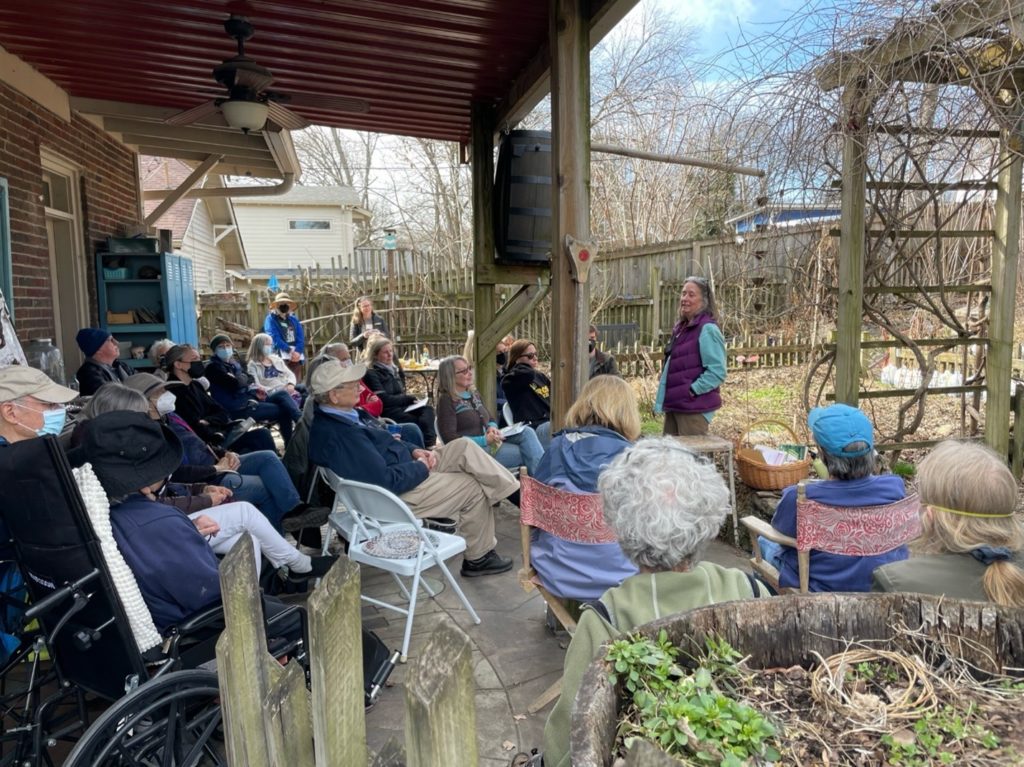
Second Sunday Gardeners of Davidson County Join Statewide Effort
NASHVILLE, Tenn. – The Second Sunday Gardeners community in Nashville, Tennessee, has come on board as the newest participating Tennessee Smart Yards Community. This program is a collaboration between University of Tennessee Extension, local municipal government and communities. Tennessee Smart Yard Communities are community organizations that strive to create healthier, more ecologically-sound landscapes through education, stewardship and connection. The program is led by Andrea Ludwig, an associate professor in the Department of Biosystems Engineering and Soil Science at the University of Tennessee Institute of Agriculture.
Maureen May, group coordinator of Second Sunday Gardeners, and Julie Berbiglia, education specialist with Nashville Metro Water Services, have played important roles in spearheading the initiative and helping spread the word about the program so that more residents can become involved.

“We believe our yards need to be more than beautiful,” says May. “We are dedicated to organic food production, protecting our pollinators and environment, and promoting biodiversity through regenerative land practices. We are not part of a formal community garden, but we seek to be a garden community, where our own yards are examples of good land stewardship and native plants that support, rather than subdue, our natural world.”
Once a month, Second Sunday Gardeners gather to share knowledge and experience in several key areas: organic food production and preservation, protection and maintenance of native plants and trees, and protecting pollinators and wildlife. In addition to participating in plant and seed giveaways and other community events, such as Weed Wrangle, the group offers a lending library of nature and garden books while promoting connections to and certifications from environmentally sound organizations such as Tennessee Smart Yards, National Wildlife Federation and Homegrown National Park. All levels of gardening experience are welcome to join the group.
“This dedicated group of gardeners are living out the Tennessee Smart Yard motto: keeping Tennessee’s land and water healthy, one yard at a time,” says Berbiglia. “They are changing neighborhood landscapes by demonstrating what environmental stewardship looks like.”

“The dedicated stewardship of this group will result in healthy land and clean water for the broader community,” states Ludwig. “There are so many Tennesseans putting in the work to ensure our beautiful natural resources are protected, and this group is an outstanding example of that.” Ludwig, who is based in Knoxville, is working with people across the state to establish these communities.
By participating as a Tennessee Smart Yards Community, these groups, from neighborhood associations to school groups, are equipped with the tools they need to educate, promote stewardship and connect with their members for the common goal of smart yards, healthy landscapes and clean water. Through the Tennessee Smart Yards program, homeowners and residents across the state incorporate yard and property management guidelines that yield healthier, more sustainable landscapes. Built on nine foundational principles of stewardship and responsibility, the program works to build awareness of small steps that can have a big impact statewide. From managing runoff in beneficial ways to incorporating native plants into residential landscapes, an online certification tool lists dozens of potential steps individual residents can take to make their yard or property a certified Tennessee Smart Yard. To certify an individual yard, visit tnyards.tennessee.edu.

“We all play a role in protecting our environment. Together we can share knowledge and support one another in this endeavor,” says Amy Dunlap, an Extension horticulture agent in Davidson County. “As a Smart Yard Community, Second Sunday Gardeners is a perfect example.”
Piloting communities coming on board this year will help develop a playbook on what it means to be an official participating Tennessee Smart Yard Community. To find out more about the process, visit tnyards.utk.edu/communities.
“When it comes to health, whether that’s environmental health or physical health or something else, small, sustainable steps make the largest difference,” adds Ludwig. “Through Smart Yards, we are cultivating respect for the environment and our role in its well-being, and I’m thrilled to see the program grow to encompass entire communities as well.”
Through its land-grant mission of research, teaching and extension, the University of Tennessee Institute of Agriculture touches lives and provides Real. Life. Solutions. utia.tennessee.edu.